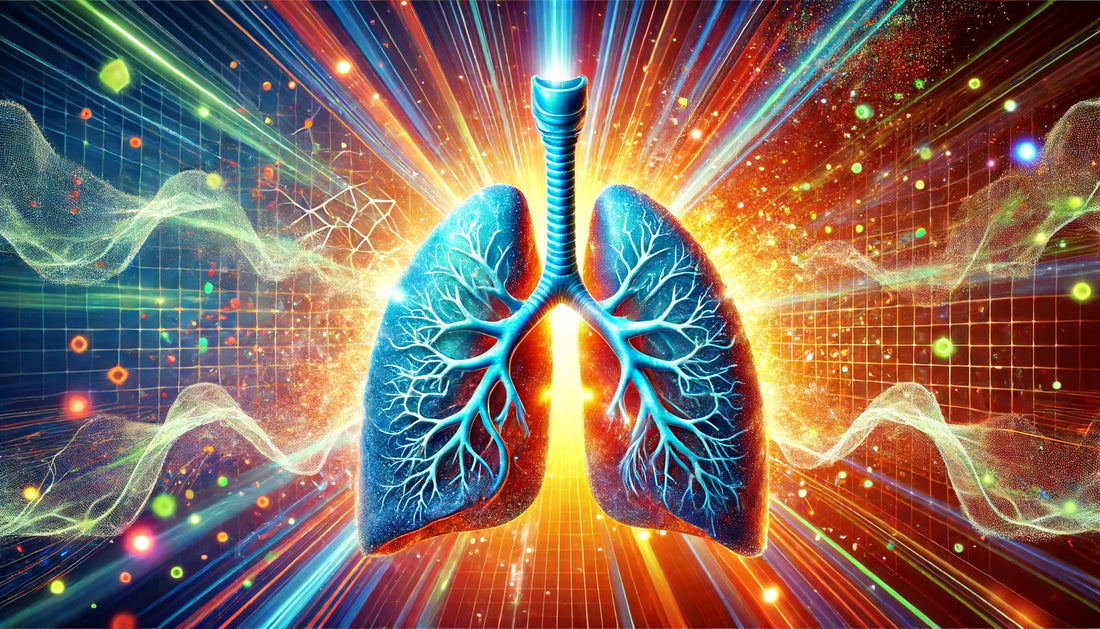
Breathing Deep: The Scientific Impacts of Healthy vs. Unhealthy Lungs
Share
Breathing Deep: The Scientific Impacts of Healthy vs. Unhealthy Lungs
The lungs are vital organs, essential not only for breathing but also for maintaining the overall health and efficiency of the human body. Healthy lungs are key to a robust, active life, while unhealthy lungs can lead to a cascade of detrimental effects. This article delves into the scientific explanations and processes behind the advantages of healthy lungs and the disadvantages of unhealthy lungs.
The Advantages of Healthy Lungs
- Efficient Gas Exchange
- Scientific Process: Healthy lungs perform optimal gas exchange, a process where oxygen is absorbed into the bloodstream, and carbon dioxide is expelled. This is facilitated by millions of alveoli, tiny air sacs with thin walls surrounded by capillaries, optimizing the surface area for gas exchange.
- Benefits: Efficient gas exchange ensures that every cell in the body receives the oxygen it needs to produce energy, thereby supporting overall vitality and physical performance.
- Strong Immune Defense
- Scientific Process: The respiratory tract is lined with mucous membranes that secrete mucus, trapping pathogens and particles. Cilia, small hair-like structures, move these trapped particles upward for expulsion.
- Benefits: This defense mechanism helps prevent infections by removing bacteria and viruses before they can cause disease, contributing to lower incidences of respiratory illnesses like pneumonia and bronchitis.
- Optimal pH Balance
- Scientific Process: The lungs regulate the acid-base balance of the body through the expulsion of carbon dioxide. Carbon dioxide levels are intricately linked to blood pH levels; by modulating CO2 exhalation, the lungs help maintain the pH within a narrow optimal range.
- Benefits: Proper pH balance is crucial for various biochemical processes and enzyme activities, influencing overall metabolic health and stability.
The Disadvantages of Unhealthy Lungs
- Impaired Gas Exchange
- Scientific Process: Unhealthy lungs often exhibit damaged alveoli, either through disease, pollutants, or smoking. This damage can reduce the surface area available for gas exchange, leading to decreased oxygen intake and increased carbon dioxide retention.
- Consequences: Insufficient oxygen levels can lead to chronic fatigue, reduced physical capacity, and in severe cases, organ dysfunction and failure.
- Increased Vulnerability to Infections
- Scientific Process: When the lungs are compromised, their ability to filter out pathogens effectively is diminished. This can be due to inflammation, excess mucus production, or structural damage, which provides a breeding ground for bacteria and viruses.
- Consequences: Individuals with unhealthy lungs are more susceptible to respiratory infections, which can further damage lung tissue, creating a vicious cycle of declining lung health.
- Systemic Health Issues
- Scientific Process: Chronic lung diseases like COPD (Chronic Obstructive Pulmonary Disease) can lead to a condition known as hypoxia—where the body's tissues are deprived of adequate oxygen. Over time, chronic hypoxia can strain the heart, leading to complications such as pulmonary hypertension and heart failure.
- Consequences: The cardiovascular system suffers, and overall life expectancy can be significantly reduced.
Preventative Measures and Management
- Avoiding Harmful Substances
- Refrain from smoking and avoid exposure to pollutants and industrial chemicals to prevent lung damage.
- Regular Exercise
- Engage in activities that boost cardiovascular and respiratory health to strengthen the lungs and improve their capacity.
- Healthy Diet
- Consume foods rich in antioxidants which help combat inflammation and support tissue repair.
- Practice Breathing Exercises
- Techniques like diaphragmatic breathing and pursed-lip breathing can improve lung capacity and efficiency, especially helpful for those with chronic lung conditions.
Healthy lungs are fundamental to maintaining not just respiratory health but the overall well-being of the entire body. Understanding the scientific processes that underpin lung function underscores the importance of lung health and provides a roadmap for both preventing lung-related issues and managing existing conditions. Prioritizing lung health through lifestyle choices and medical care can lead to a longer, more active life, emphasizing the adage: To breathe well is to live well.
